New Faculty Members Hit the Ground Running
Vassar’s 14 new tenure-track faculty arrived at the College this academic year with unique and diverse talents, interests, and areas of expertise.
Two new faculty members—Assistant Professor of Drama Amanda Culp ’09 and Assistant Professor of Computer Science Prairie Rose Goodwin ’12—are Vassar alums. Two new colleagues, Assistant Professor of Art John Hulsey and Assistant Professor of Education Mark Emerick, worked on grant-supported research projects in the fall (supported by the Mellon Foundation and Spencer Foundation respectively) and will begin teaching at Vassar in the Spring Semester. Another, Assistant Professor of Political Science Arpitha Upendra Kodiveri, is an environmental lawyer. Kodiveri (Bangalore, India) and Assistant Professor of French and Francophone Studies Rupinder Kaur (Sydney, Australia) were born outside of the United States. And—what are the odds?—both Assistant Professor of Mathematics and Statistics Trevor Hyde and Assistant Professor of History Noel Edward Smyth are natives of Fairfield, Iowa, a town of about 9,500 people.
Dean of Faculty William Hoynes was enthusiastic in reporting that the new faculty members are already making significant contributions to the College. “Our new faculty colleagues are truly outstanding teacher-scholars who are engaging in innovative teaching, valuable mentoring of students, impactful research, and creative work; they are deeply involved with college life,” Hoynes said. “I was genuinely excited to welcome our new faculty to campus when they arrived in August, and I look forward to working with these colleagues for many years to come. It is humbling to have the opportunity to support and learn from such a wonderful group of early-career faculty members.”
- Amanda Culp ’09
(Drama) - Myles Drance
(Chemistry) - Mark Emerick
(Education) - Stephen Flusberg
(Cognitive Science) - Prairie Rose Goodwin ’12
(Computer Science)
- John Hulsey
(Art) - Trevor Hyde
(Mathematics and Statistics) - Rupinder Kaur
(French and Francophone Studies) - Arpitha Upendra Kodiveri
(Political Science) - Kahdeidra Monét Martin
(Education)
- Kathryn Pendoley
(Philosophy) - China Sajadian
(Anthropology) - Blevin Shelnutt
(English) - Noel Edward Smyth
(History)
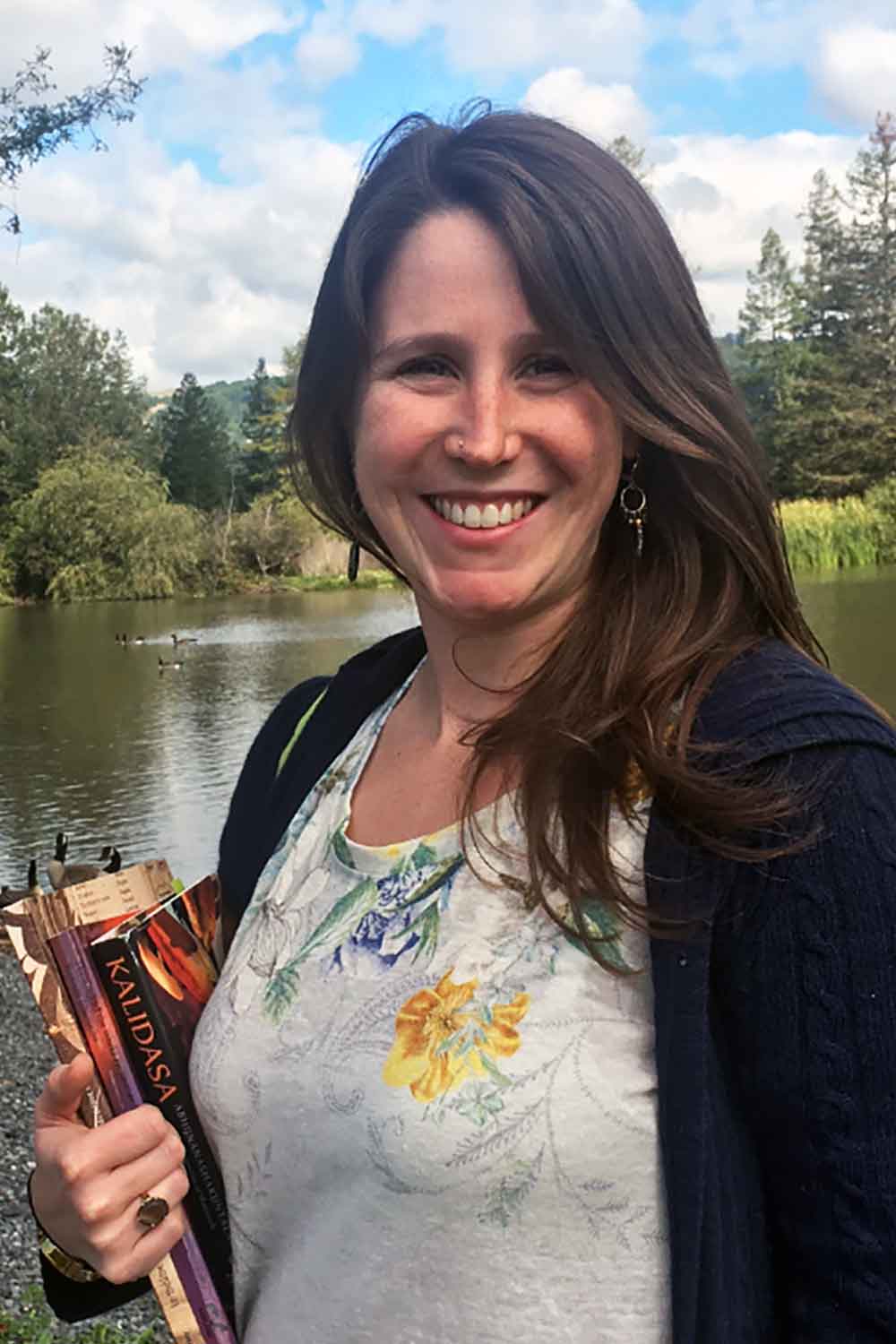
Photo: courtesy of the subject
Amanda Culp ’09
Department:
Drama
Education:
BA, Vassar College; MAR, Yale University; PhD, Columbia University
Primary area of research or creative work:
I am a performance historian and dramaturg who specializes in Sanskrit drama and South Asian performance practices.
Brief description of a course you are teaching this year:
I am teaching our theater history survey, Sources of World Drama. It’s a difficult class to teach—2,000+ years of global history is hard to fit into two semesters!—but it’s also really fun. I enjoy the challenge of reframing the history and practice of theater through a global lens, which keeps me learning and encountering new material alongside my students.
Town/City where you grew up:
White Plains, NY
Hobbies/Interests:
Paddle boarding, yoga, hiking, cooking, and traveling. And spoiling my dog, Bess.
Why you chose Vassar:
As a proud Vassar alumna (Class of ’09!) it has been a dream come true for me to come back to build my career here. I may be biased, but Vassar students are just the best—they are so much fun to teach because they are so driven and intellectually curious. And, unsurprisingly, the Vassar faculty who make such great mentors and teachers to their students also make great mentors and teachers to their colleagues.
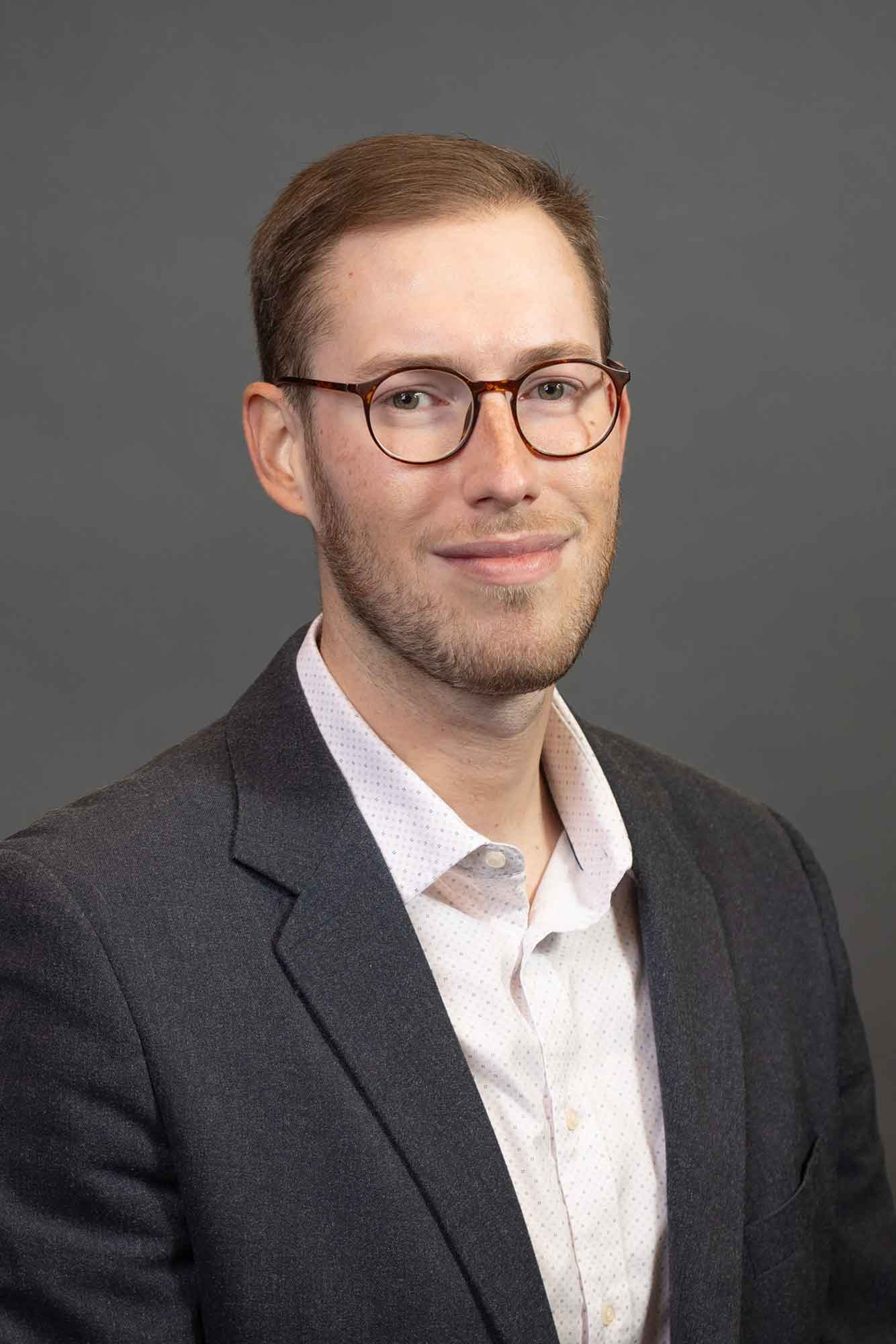
Photo: Allyse Pulliam
Myles Drance
Department:
Chemistry
Education:
PhD in Chemistry from the University of California, San Diego; BA in Chemistry and Spanish from Colgate University
Primary area of research or creative work:
Inorganic and Organometallic Chemistry
Brief description of a course you are teaching this year:
CHEM 125: Chemical Principles. This course is designed to cover the important aspects of general chemistry in one semester. The material covered includes chemical reactions, stoichiometry, atomic and molecular structure, and general chemical physics, emphasizing the fundamental aspects of and connections between equilibria, electrochemistry, thermodynamics, and kinetics.
Town/City where you grew up:
Huntington, NY
Hobbies/Interests:
Hiking, baking, traveling.
Why you chose Vassar:
My own education at Colgate inspired me to pursue a career at a liberal arts college. I greatly valued the smaller class sizes and one-on-one interaction between student and professor, and now I’m eager to give back on the other side of the equation. Vassar provides the perfect place for me to teach and train talented undergraduates, while following my own research interests in the beautiful Bridge for Laboratory Sciences.
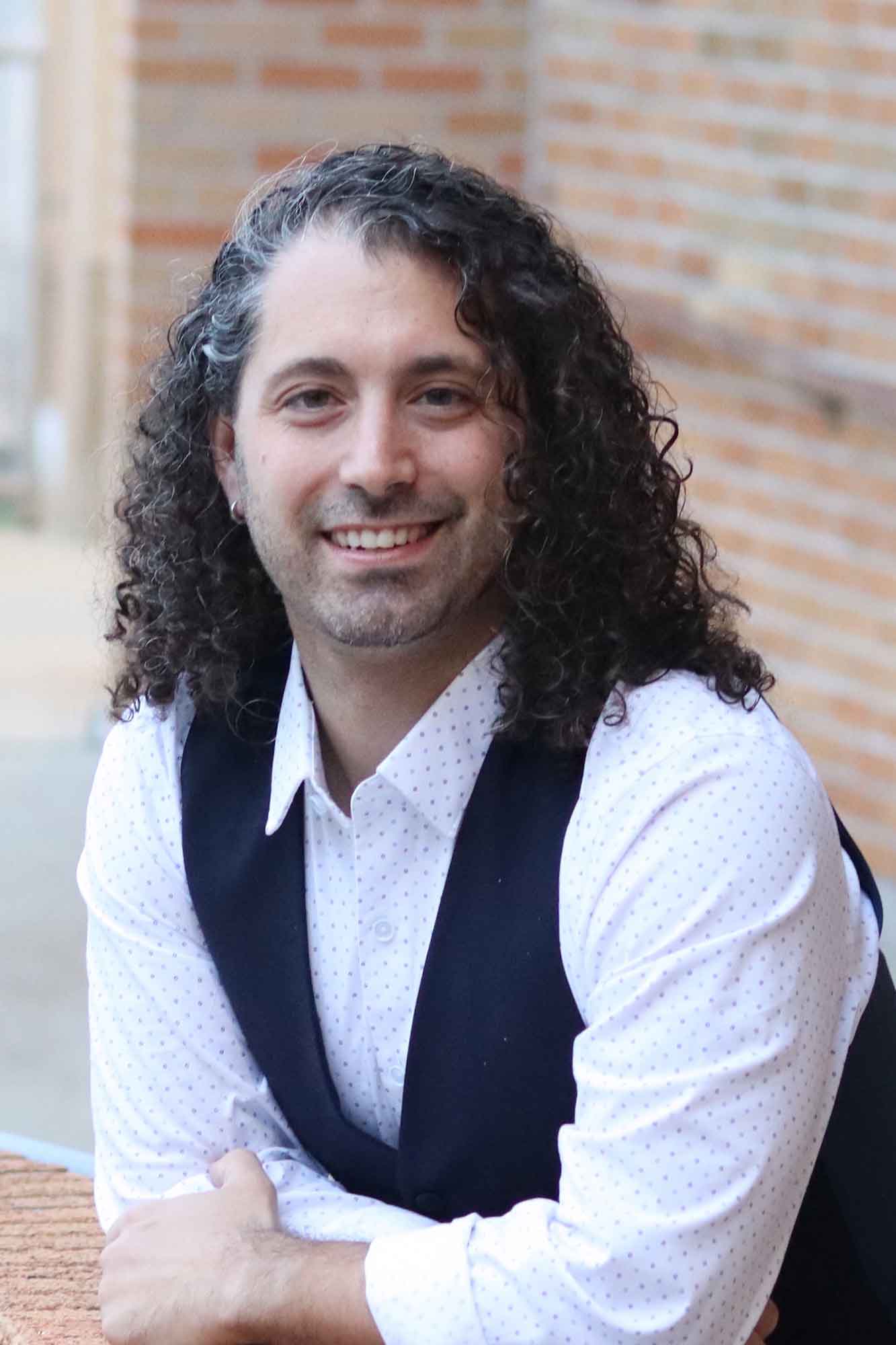
Photo: Sera Karahoca
Mark R. Emerick
Department:
Education
Education:
PhD in Applied Linguistics, College of Education, Temple University
Primary area of research or creative work:
My research focuses on opportunity to learn for multilingual learners (students who are officially classified as English learners) in U.S. schools—with a particular focus on college and career readiness. Drawing on critical race theory, critical diversity studies, and critical discourse analysis, I have examined multilingual learners’ experiences in and access to career and technical education programs. As a secondary area of interest, I examine the ways in which language ideologies operate in schools and interact with concepts of race, political economy, education policy, and multilingual learners’ opportunity to learn.
Brief description of a course you are teaching this year:
This spring, I will teach a new class called Language Policy and Planning in Education. The course focuses on the way that education policy impacts the opportunity to learn for multilingual students. Students will focus on policy discourse, the policy making process, policy interpretation and implementation, and future directions for equity and justice in language education.
Town/City where you grew up:
Elizabethtown, Pennsylvania
Hobbies/Interests:
Fitness, running, biking, backpacking, cooking, and eating.
Why you chose Vassar:
I could tell immediately during my on-campus visit that Vassar was a welcoming and genuine environment. It seemed like a place where I could really settle in as a teacher and where my scholarship would be supported and valued. And I kept hearing about how great the students are!
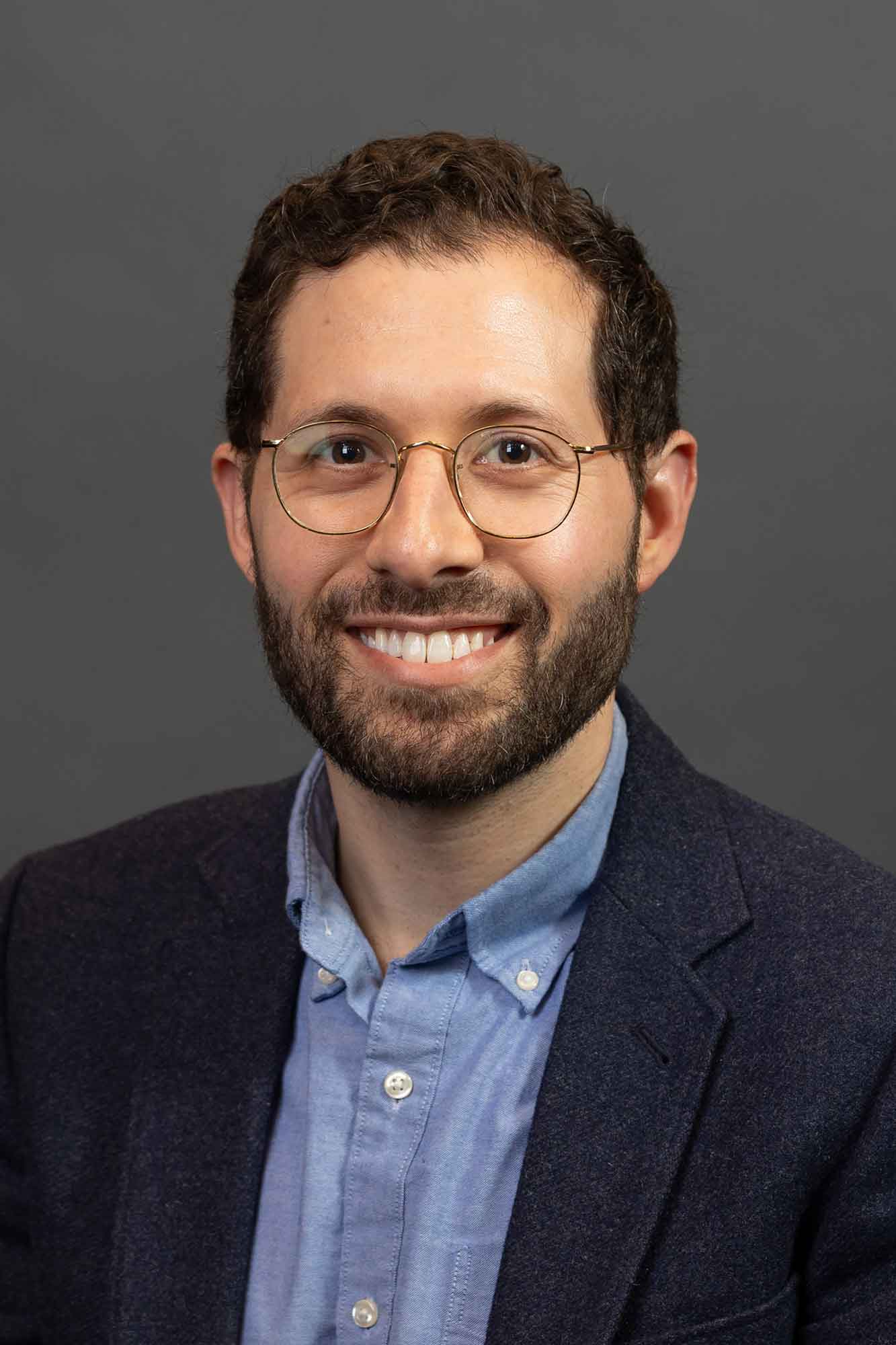
Photo: Allyse Pulliam
Stephen Flusberg
Department:
Cognitive Science
Education:
BAs in Psychology and Religion from Northwestern University; MA and PhD in Cognitive Psychology from Stanford University
Primary area of research or creative work:
I am interested in how people think and reason about complex and abstract issues like the economy, climate change, emotions, and time. Much of what we know about these topics comes not from direct experience, but from what we hear and read. As a result, my work largely focuses on how language and public discourse reflect and shape attitudes and decision-making. I am especially interested in the relationship between metaphor and cognition and the mechanisms that underlie linguistic framing effects.
Brief description of a course you are teaching this year:
My COGS 311 seminar is entitled Language & Thought. We are exploring questions such as: What is the relationship between language and cognition? Are some thoughts unthinkable without language or are the effects of language on thought more benign? Do people who speak different languages think about or perceive the world differently? Through what mechanisms might language influence other cognitive processes? Questions like these have long captivated philosophers, linguists, anthropologists, psychologists, and science fiction authors, generating fierce debates, clever experiments, and plenty of controversy. In this course, we explore these ideas from a range of perspectives, with an emphasis on critically evaluating various theoretical frameworks and empirical evidence.
Town/City where you grew up:
Newton, Massachusetts (a suburb of Boston)
Hobbies/Interests:
Music (I play guitar and love going to live concerts); television, movies, and books (with an emphasis on speculative fiction); live theater; horology; and self-defense training.
Why you chose Vassar:
It is rare to find a liberal arts college with a dedicated cognitive science program, not to mention a cognitive science department. While my training is in experimental psychology, my interests have long been multidisciplinary, and I have always felt that cognitive science is my home discipline. Vassar has a reputation as one of the best undergraduate schools for cognitive science in the country, and the opportunity to join the department here was truly a dream come true. Additionally, I have long known that Vassar students are exceptional—two of my friends from graduate school studied cog sci at Vassar—and I am excited to teach, work with, and learn from them. It also doesn’t hurt that the Vassar campus is dog friendly!
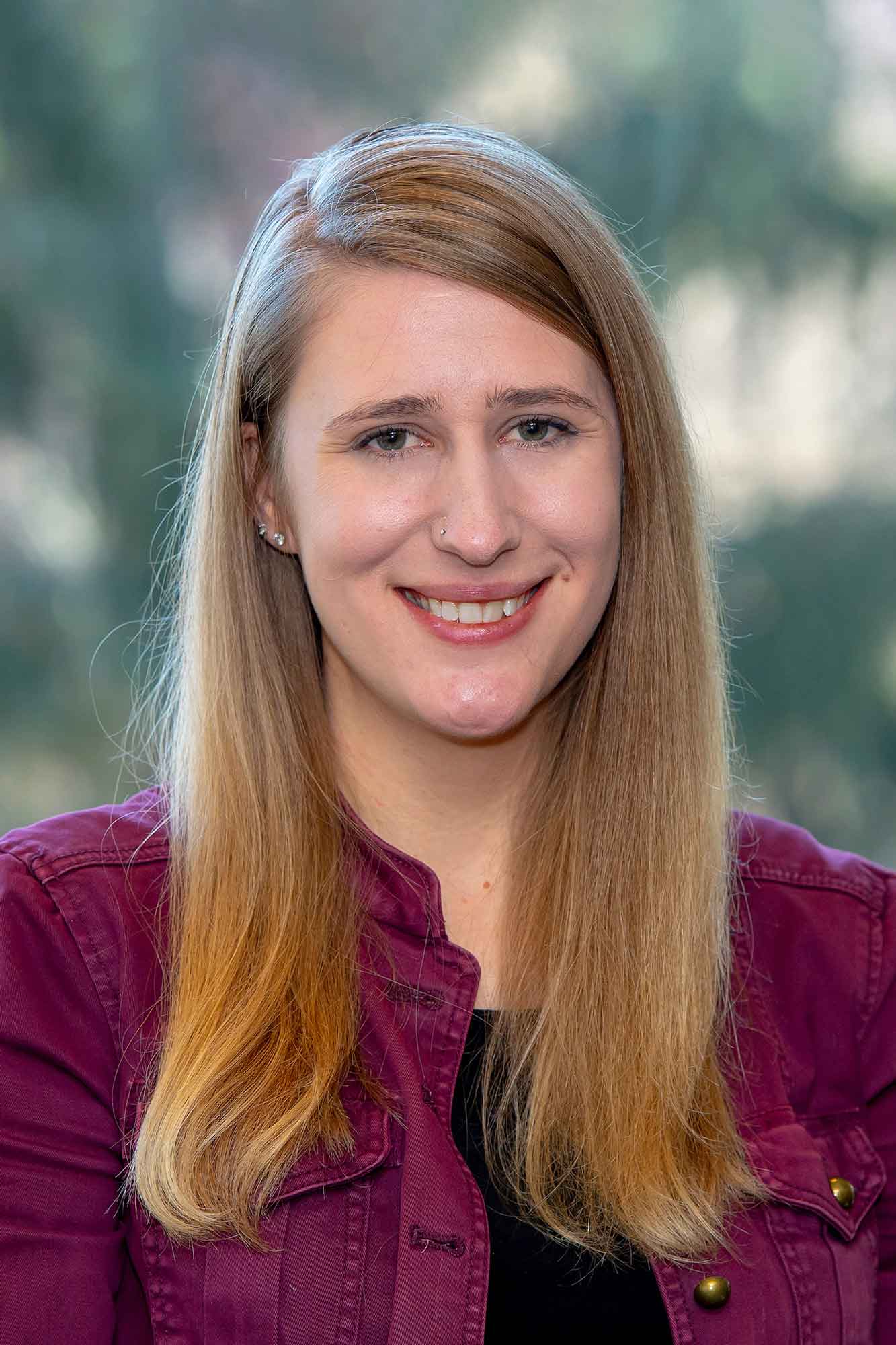
Photo: courtesy of the subject
Prairie Rose Goodwin ’12
Department:
Computer Science
Education:
BA from Vassar in Computer Science with Correlates in Mathematics and Greek and Roman Studies; MS, PhD from North Carolina State University at Raleigh
Primary area of research or creative work:
Human-Computer Interaction
Brief description of a course you are teaching this year:
I am teaching the Data Structures and Algorithms course at Vassar, also known as CMPU102. It’s the first course where you make larger projects from scratch. I try to keep the subject fun and lighthearted, so we end up making quite a few games and learn about how to design programs to be both correct and efficient.
Town/City where you grew up:
Rapid City, SD
Hobbies/Interests:
I like working with my hands and creating things in a variety of mediums, playing video games, exploring the local area, and cooking delicious food.
Why you chose Vassar:
Being an alum of Vassar College means that it has always held a special place in my heart, and I’m excited to give back to the place that set me up for success. Vassar is a teaching-first, small-classroom experience, and that is the kind of educational environment I want to provide for others.
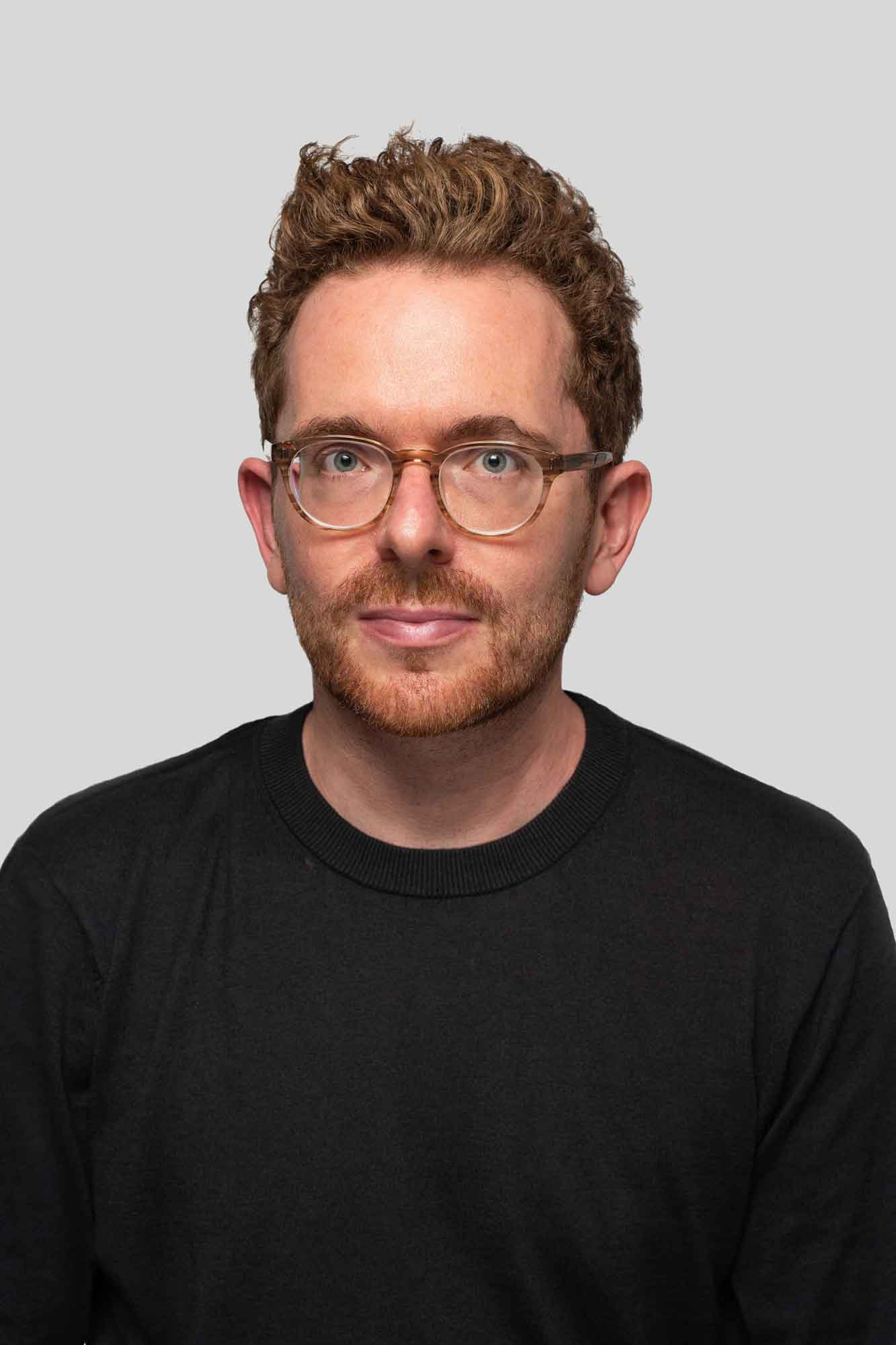
Photo: Cameron Crone
John Hulsey
Department:
Art
Education:
MFA, UCLA; Maîtrise, Université Paris-III Sorbonne Nouvelle; AB, Harvard College
Primary area of research or creative work:
Video, Digital Media
Brief description of a course you are teaching this year:
I will be teaching two studio courses this spring: an introductory course on video art and an intermediate course on digital art in which students will experiment with a range of digital imaging and display technologies.
Town/City where you grew up:
Los Angeles, California
Hobbies/Interests:
Poetry, cooking, experimental film.
Why you chose Vassar:
There are certain moments when a choice presents itself as undeniable and clear. Joining the Vassar community was one of these for me. I chose Vassar because I wanted to be part of a visionary community of practice. From the moment I set foot on campus, I was struck by the brilliance and generosity of its faculty, students, and staff and by the kinds of conversations that are possible in a place that values equity, experimentation, and open-ended inquiry.
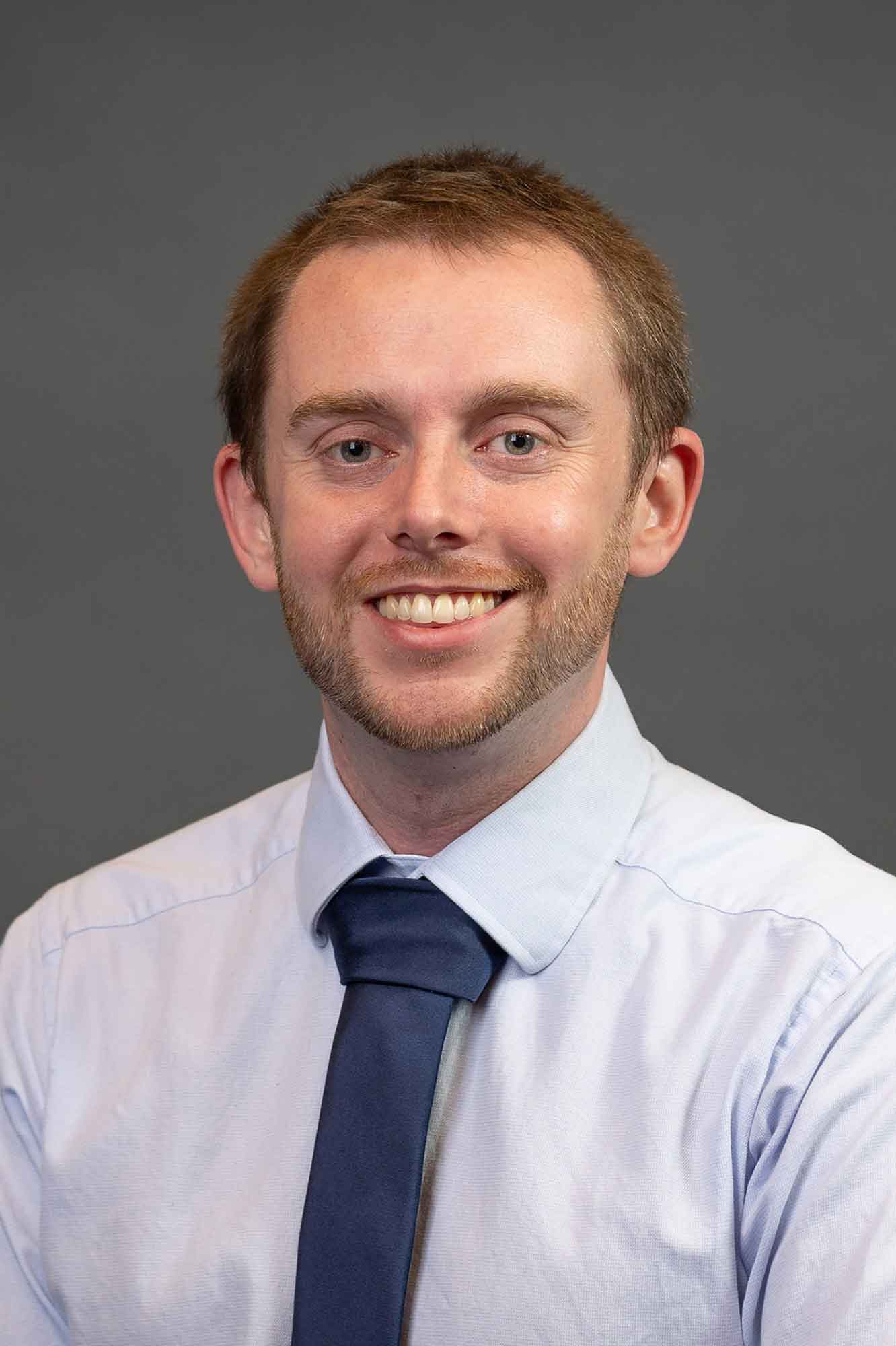
Photo: Allyse Pulliam
Trevor Hyde
Department:
Mathematics and Statistics
Education:
PhD and MS in mathematics from University of Michigan; BA in mathematics from Amherst College.
Primary area of research or creative work:
Number theory and dynamical systems.
Brief description of a course you are teaching this year:
Introduction to the theory of numbers.
Town/City where you grew up:
Fairfield, Iowa.
Hobbies/Interests:
Reading, games, puzzles, racket sports, travel.
Why you chose Vassar:
I wanted to work in a liberal arts college and I was charmed by the students and faculty here at Vassar when I came to visit.
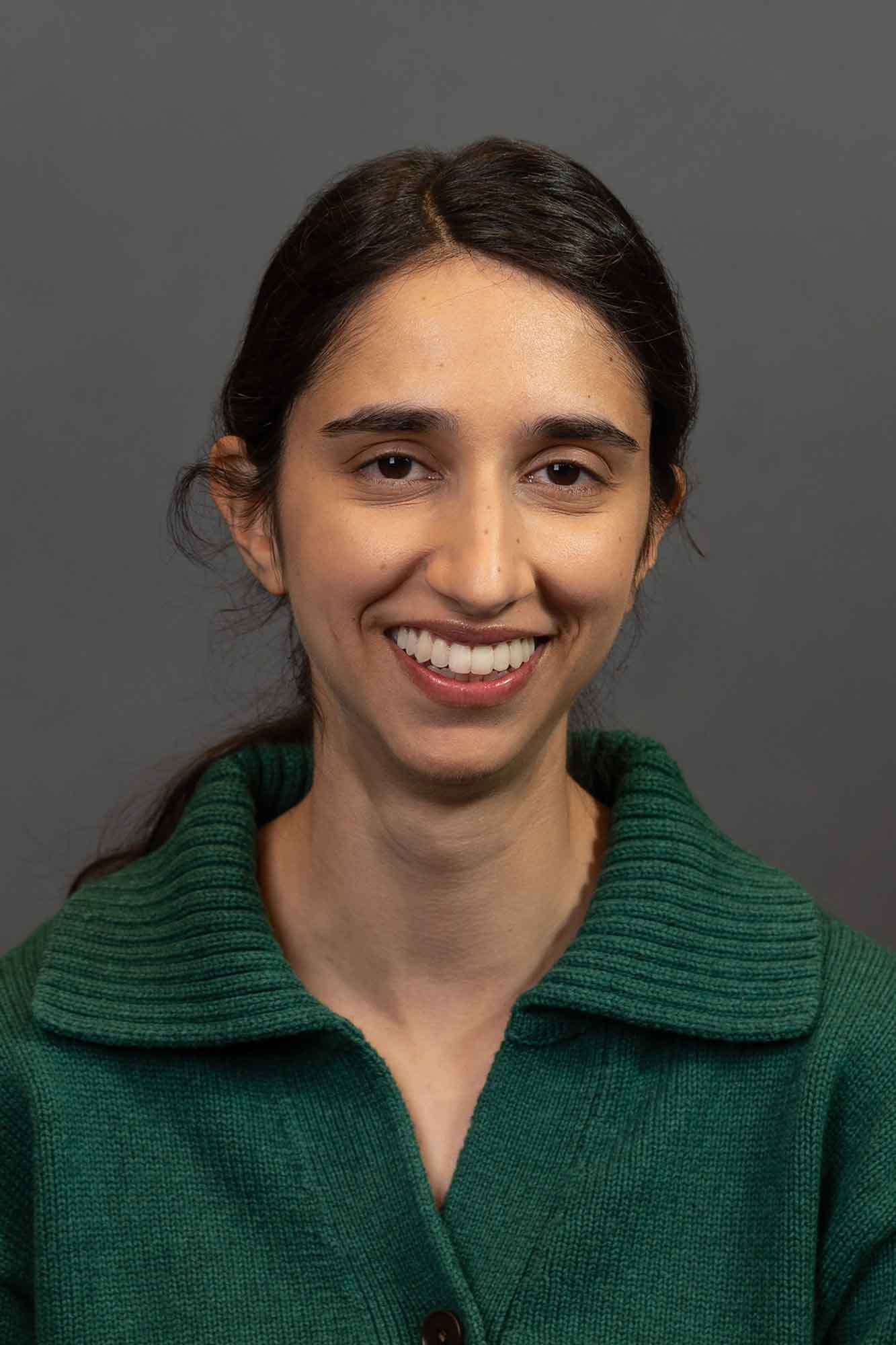
Photo: Allyse Pulliam
Rupinder Kaur
Department:
French and Francophone Studies
Education:
BA, French and Spanish, University College London; MA and PhD, UC Berkeley
Primary area of research or creative work:
French literature and culture from the Renaissance and Early Modern period (16th–18th century). I am currently working on a book project on joy and a secondary project on the early modern monument.
Brief description of a course you are teaching this year:
I’ll be teaching a seminar in the FFS department in Spring 2024 on the Arts of Absolutism. We’ll be looking at the cultural artifacts of Louis XIV’s reign, peeking behind the spectacle of “absolutist” art by asking three core questions: How did the king represent and celebrate his authority? What was the connection between state power and artistic production? How did artists criticize or challenge state power? To explore these questions, we’ll engage with a variety of texts, images, and artifacts, including fairy tales, novels, garden plans, architectural plans, tapestries, paintings, plays, and political treatises.
Town/City where you grew up:
I was born and spent the first few years of my life in Sydney, Australia, before moving to Wokingham, UK.
Hobbies/Interests:
I’m interested in hiking, cinema, urbanism, textile arts (my hobbies include tapestry weaving and embroidery), and I spend much of my free time hanging out with my kitten, Moon.
Why you chose Vassar:
When I visited for my job interview, I was struck by the warmth and curiosity of everyone I met. I was excited to see that students are encouraged to pursue and deepen their intellectual interests; there is a lot of institutional backing for meaningful work within and beyond the classroom—and that faculty regularly collaborate on teaching and research projects.
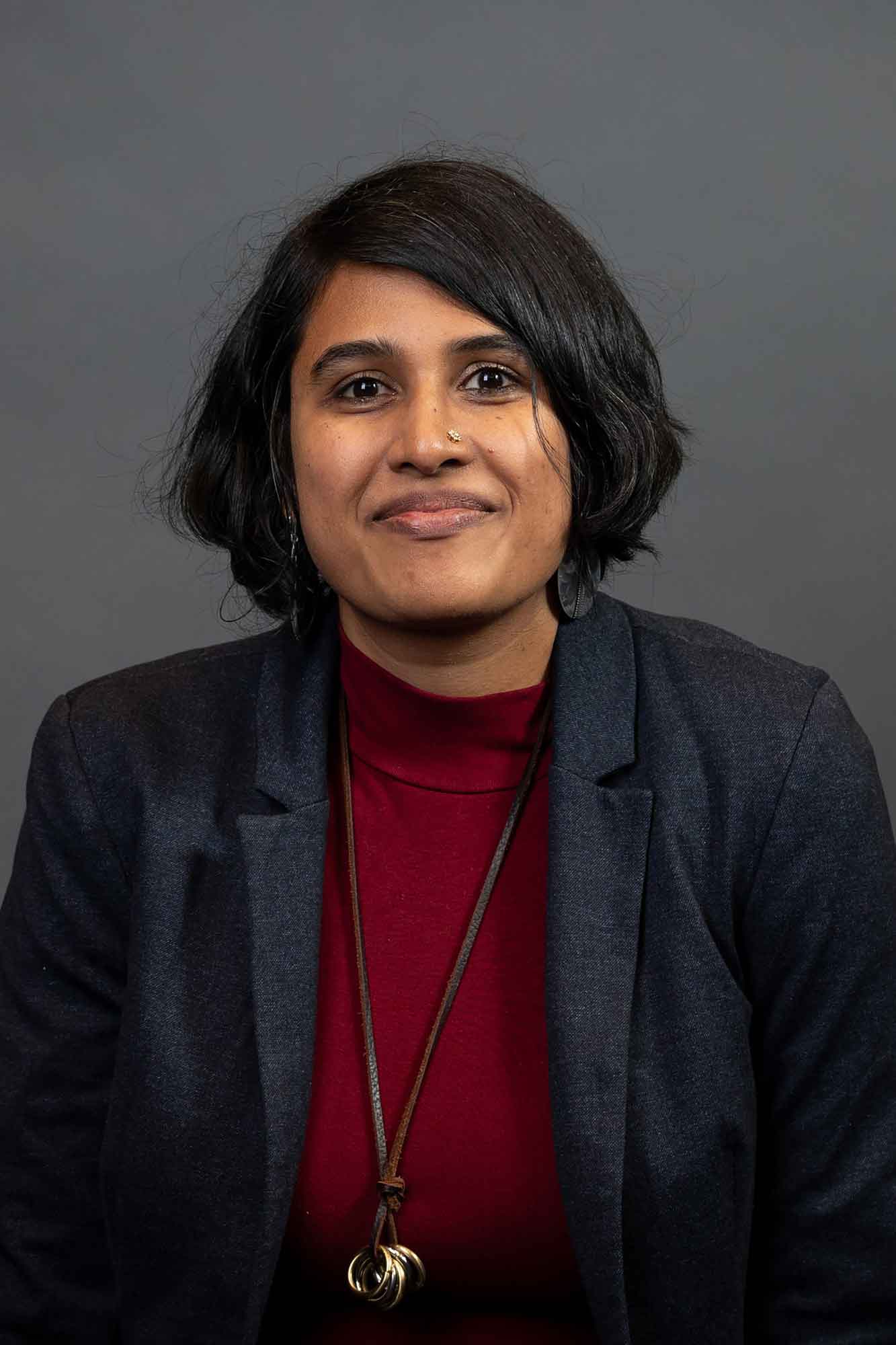
Photo: Allyse Pulliam
Arpitha Upendra Kodiveri
Department:
Political Science
Education:
PhD in Law at the European University Institute; LLM in international and comparative law at the EUI; LLM in Environmental Law at UC Berkeley School of Law; BSL LLB from ILS Law College, India
Primary area of research or creative work:
My work examines the environmental and climate justice struggles of indigenous communities in South and Southeast Asia. I practice as an environmental lawyer too providing strategic legal support and research in a few cases on issues of land conflicts and climate reparations. I am presently working on understanding the legal failures and responses to the harm encountered by climate victims on the ground due to heat waves and other climate-induced disasters in South Asia.
Brief description of a course you are teaching this year:
I am teaching a course titled International Law and the Anthropocene, where we unpack the way international law is evolving to respond to the climate crisis. We critically engage with international laws’ constitutive role in allowing for the climate crisis to worsen whilst also examining the law as a site for repair and remedy where the youth climate movement, indigenous movements, and other climate justice movements are innovating to design promising international legal futures.
Town/City where you grew up:
I grew up in Bangalore, India.
Hobbies/Interests:
I enjoy bird watching, reading climate fiction, and watching lots of Bollywood cinema.
Why you chose Vassar:
I chose Vassar College because of its fondness for interdisciplinary research, collegial department, and its willingness to support meaningful and experimental work needed in the context of the climate crisis. It has been only a semester, but all of these reasons stand, and I must confess that I feel at home being able to teach, practice, write, and research the pressing issues of climate law and policy.
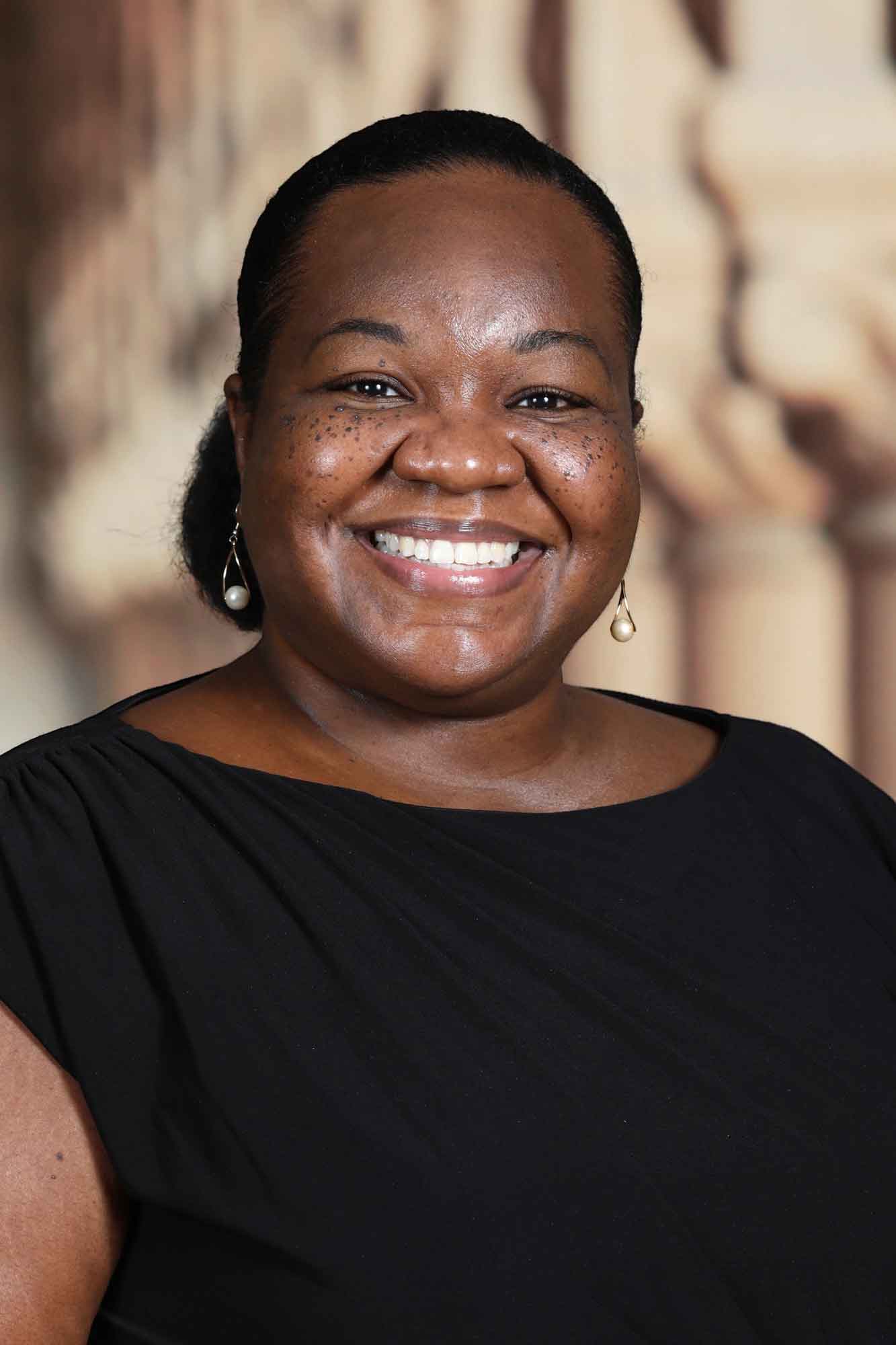
Photo: courtesy of the subject
Kahdeidra Monét Martin
Department:
Education
Education:
BA in African and African American Studies, Stanford University; MSEd in Teaching Urban Adolescents with Disabilities, Long Island University-Brooklyn Campus; MPhil and PhD in Urban Education, The Graduate Center, City University of New York
Primary area of research or creative work:
Multilingualism in Schools, Black Diasporic Languages and Education, Adolescent Literacy, African Diasporic Religions
Brief description of a course you are teaching this year:
EDUC 268 Critical Perspectives on Multilingualism and Linguistic Variation in Schools and Society: In this course, we explore the social and political landscape of language as related to multilingual and multi-varietal learners across the lifespan. We examine the colonial and racialization processes that impact language development and socialization; the role of multilingualism in communities; intersectional experiences of race, ethnicity, gender, spirituality, and dis/ability; and models of culturally sustaining and trans-languaging pedagogies that promote belonging. Along with daily group activities and weekly double-entry journals, students are applying concepts in theoretical linguistics learned in class to analyzing a linguistic community of their choice. They are also developing a list of children’s and young adult books written in these languages to contribute to our Vassar Education Children’s Library.
Town/City where you grew up:
New York City
Hobbies/Interests:
Cooking, dancing, creative writing, interreligious prayer.
Why you chose Vassar:
First, Vassar is known for having a vibrant alumni/ae community who value creativity and making meaningful change in the world. I’ve never met a graduate who did not love their experience here. Second, as a transdisciplinary scholar, my research examines how deficit ideologies of race, religion, and language are related to each other and how decolonial, culturally sustaining pedagogies can support student efficacy and belonging. With several colleagues engaged in critical studies of race and religion in the Caribbean and 40% of students being graduates of selective private schools, Vassar offers unique opportunities to broaden my research on race in independent schools and oral narratives of African diasporic religious communities.
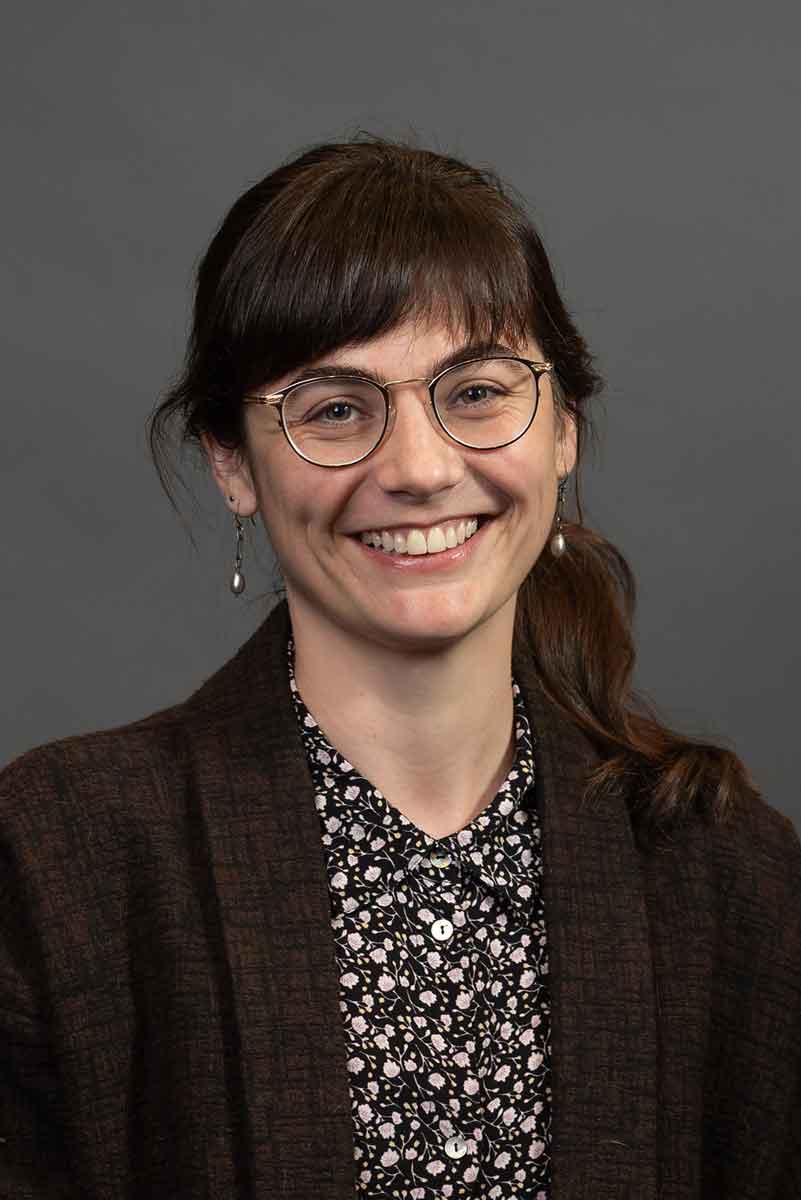
Photo: Allyse Pulliam
Kathryn Pendoley
Department:
Philosophy
Education:
BA, University of Virginia; MPhil, PhD, The Graduate Center of the City University of New York
Primary area of research or creative work:
My research focuses primarily on the emotions and lie at the intersection of philosophy of psychology, consciousness studies, and the cognitive and affective sciences. I’m interested in questions such as: How might emotions fit into existing theories of consciousness? How does emotional coping function in the context of oppression? What can our best neuroscientific accounts explain about emotion, and where might their strengths and weaknesses lie?
Brief description of a course you are teaching this year:
This fall, I’m teaching Philosophy of Science. This course draws on historical and contemporary cases from physics, neuroscience, biology, data science, and the social sciences, to ask questions such as: What is scientific reasoning, and why is it a good way to learn about the world? How might scientific communities and projects be biased? Why do scientists accept some theories and not others? What are the relationships among the different sciences, and what makes for a good scientific explanation? Are theoretical virtues such as simplicity and universality valuable across all scientific disciplines?
Town/City where you grew up:
Amesbury, Massachusetts
Hobbies/Interests:
Hiking (city and wilderness alike); running; surfing (though I’m very much a novice!).
Why you chose Vassar:
This is my dream position! I wanted a position that allowed me to pursue both creative teaching and interdisciplinary research, and I knew Vassar would be the ideal place for this. I am constantly impressed by my students’ motivation and curiosity both inside and beyond the classroom—especially in their independent writing and projects. In fact, my students’ interests and questions have helped to shape the new courses I’ve designed. I’m already looking forward to teaching a brand-new senior seminar and creative intensive course next year! I’m also learning a great deal from my colleagues’ interdisciplinary work and their work to challenge traditional canons, both within their teaching and in their research. And this is just the beginning! I feel so fortunate to work in such a vibrant place.
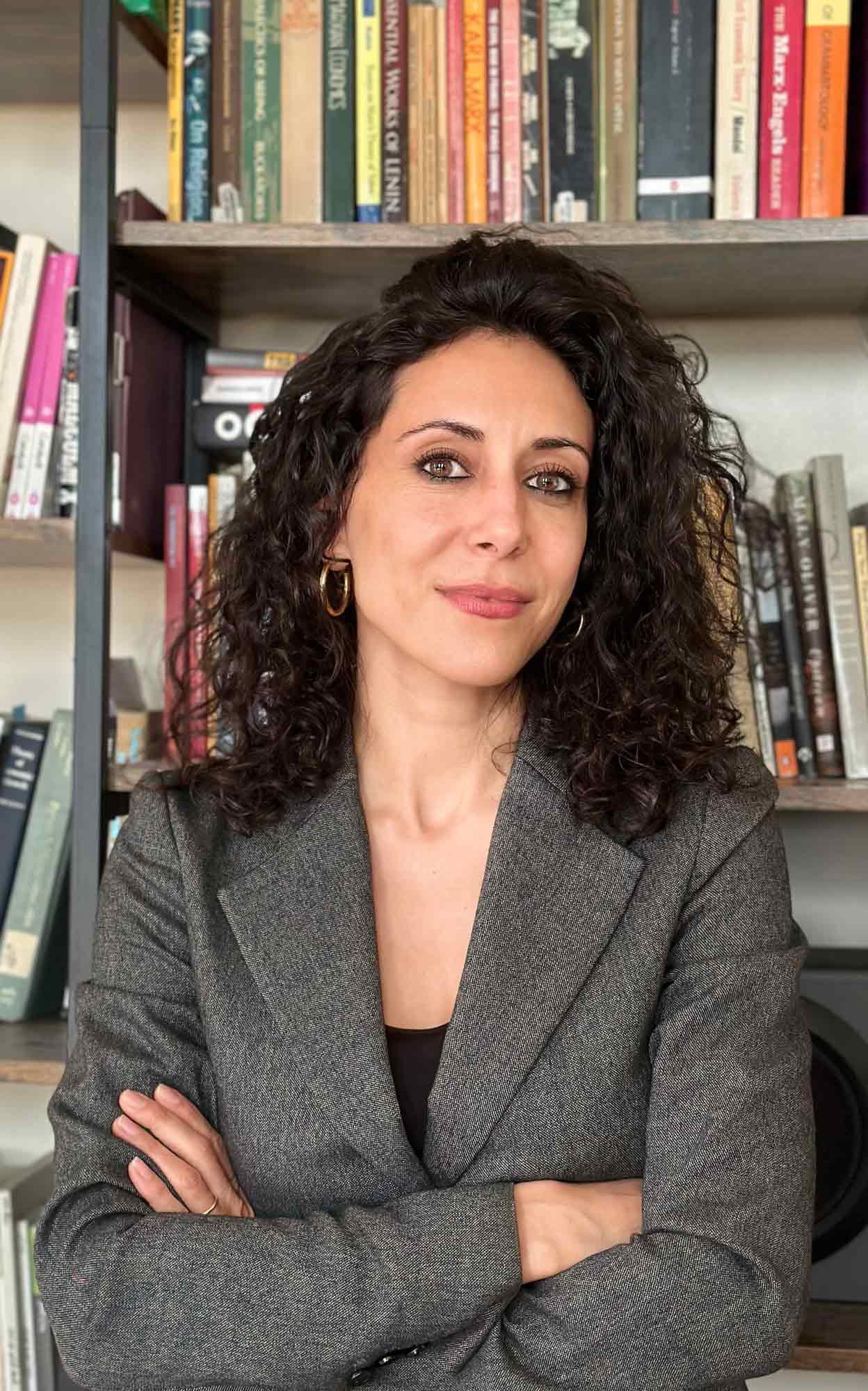
Photo: courtesy of the subject
China Sajadian
Department:
Anthropology
Education:
BA, Government, Smith College; MA, Anthropology, Columbia University; PhD, Anthropology, City University of New York Graduate Center
Primary area of research or creative work:
Bridging migration studies, agrarian studies, and economic anthropology, my research broadly examines links between histories of displacement and contemporary conflicts over land and labor in the Middle East. My current book project, Debts of Displacement , is based on nearly two years of ethnographic fieldwork with Syrian and Lebanese agriculturalists at the Lebanese-Syrian border. By examining the distinctly agrarian conditions of Syrian farmworkers’ displacement from a feminist perspective, my research challenges the distinction between “involuntary” refugees and “voluntary” labor migrants, as well as the idea of a refugee crisis itself.
Brief description of a course you are teaching this year:
I am teaching two courses, a 300-level seminar entitled Anthropology of Migration, Displacement, and Transnationalism, and a 200-level course, Anthropology of the Middle East and North Africa.
Anthropology of Displacement, Migration, and Transnationalism: This advanced seminar introduces students to the anthropological study of displacement at multiple levels within a global, comparative perspective. Through scholarly texts, film, and literature across a wide range of regional contexts, we pursue two interrelated tracks of inquiry, as students develop semester-long independent writing projects. One track is historical : We examine imperial legacies of the native-migrant divide, the postcolonial partition of nation-states, the uneven development of a globalized division of labor across the world, and how these fraught histories endure within the present. Our second line of inquiry is primarily ethnographic : it concerns the paradoxes of displacement in everyday human experiences, such as waiting in transit, making a home in exile, and the striking capacity of borders to appear invisible or real to the point of being deadly, depending on who or what crosses them, and how. Taken together, the course offers advanced students a multidisciplinary and multidimensional understanding of how human immobilities are governed, contested, and experienced across the world—and how these conditions shape the possibilities and limits of transnational solidarity today.
Town/City where you grew up:
Los Angeles, CA
Hobbies/Interests:
Singing of all genres in multiple languages; biking around the Hudson Valley with my son and husband; serving on the board of the Friends of the Freedom Theatre in Jenin Refugee Camp; spending summers in the Mediterranean with friends and family.
Why you chose Vassar:
From my experience as an undergraduate to my postdoc year at Smith College, I have long been inspired by the scholar-teachers I have encountered at liberal arts colleges. I have experienced the liberal arts college classroom as a special combination of deep connections, big ideas, and critical thinking—first as a student and then as a teacher—and I knew this was the kind of intellectual environment where my work and teaching could grow and thrive.
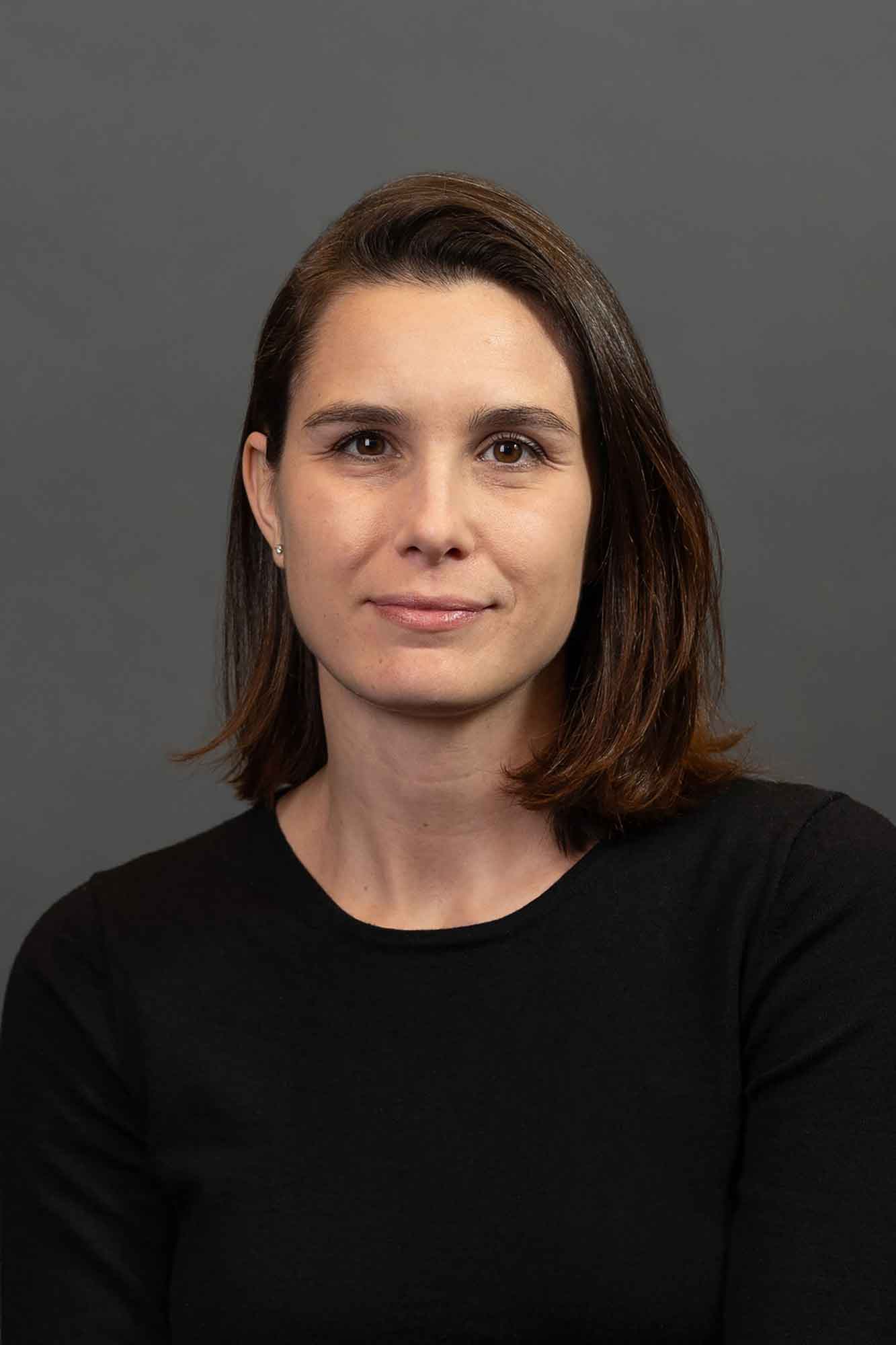
Photo: Allyse Pulliam
Blevin Shelnutt
Department:
English
Education:
BA, Davidson College; MA, PhD, New York University
Primary area of research or creative work:
Early American literature and culture
Brief description of a course you are teaching this year:
American Bestsellers explores popular texts in a range of genres and media that circulated in the American colonies and early United States, from the Puritan textbook The New England Primer to the memoir of the Sauk leader, Mà-ka-tai-me-she-kià-kiàk , to the domestic novel Little Women.
Town/City where you grew up:
Marietta, GA
Hobbies/Interests:
Home improvement projects, gardening, my dog, Hank.
Why you chose Vassar:
I love getting to work closely with students in small classes and appreciate an institutional culture that encourages students to explore broad intellectual paths. It’s also wonderful working among colleagues who are celebrated experts in their fields. And I really enjoy living in the Hudson Valley!
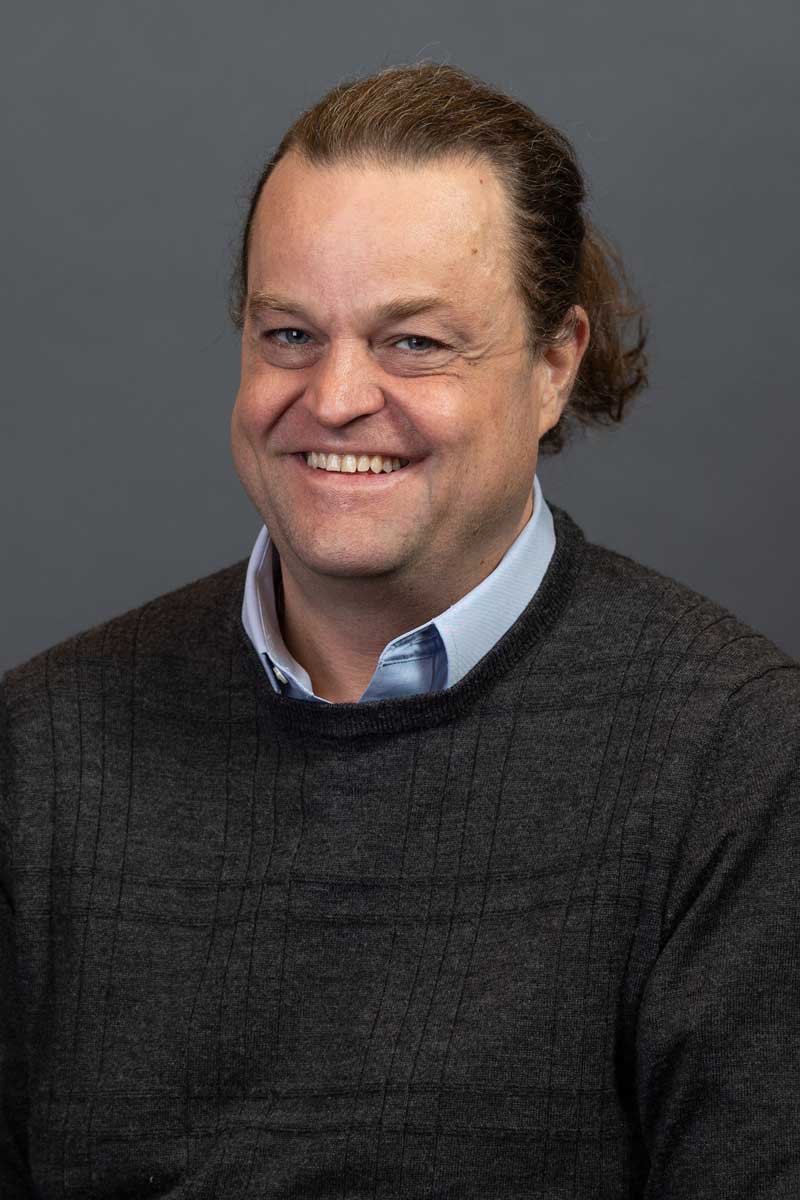
Photo: Allyse Pulliam
Noel E. Smyth
Department:
History
Education:
PhD in History, UC Santa Cruz; MA in History, UC Santa Cruz; BA in History and English, University of Iowa
Primary area of research or creative work:
Native American history
Brief description of a course you are teaching this year:
I am teaching a class on the history of the early modern Indigenous Caribbean (HIST 366).
Town/City where you grew up:
Fairfield, Iowa
Hobbies/Interests:
Disc golfing, hiking, video games.
Why you chose Vassar:
So many reasons! The enthusiasm of the students. The emphasis on teaching and research at Vassar. The supportive community of people all over campus and especially in the History Department.